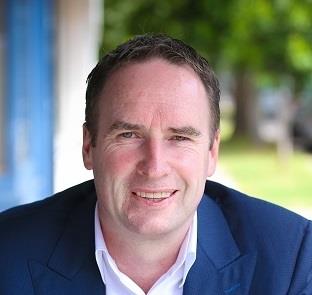answered
Q: How do I find a buyer's agent for investment property?
A: Hi Frank
Firstly, congratulations on seeking the services of a quality buyer's agent. That's very wise.
Most investors should engage a buyer's agent as the vast majority of properties on the market are not 'investment grade' so it's madness to spend hundreds of thousands of dollars on an ineffective and/or overpriced property, or miss out due to competition for the best properties. I expect I'm preaching to the converted but I say these things for the benefit of others who maybe unaware of the significant advantages of a buyer's agent as opposed to believing they can select the wheat from the chaff, and outmanoeuvre a sales/ marketing agent working hard for the vendor. Good luck with that.
There are any number of buyer's agents so finding one isn't difficult. The hard part is finding a good one with experience in your preferred market/s, and who doesn't just recommend new properties (they are not buyer's agents).
I've work closely with 2 truly independent buyer's agencies over some years, so I know them from the inside. Depending on what you want and where, I'd happily recommend either to you. Please advise if you wish details.
answered
Q: Hi. I use AFG FLEX as a Mortgage Broker however I find FLEX isnt a great CRM system. It handles loan processing OK, and the SMART marketing is OK - but what I am looking for is a great CRM. I hear about salesforce??
I am looking for help on the best CRM to handle all client interactions/link attachments & emails, along with if I send referrals to referral partners.
Thanks
Tony
A: Hi Tony
I operated a mortgage broking practice in Qld for 17 years so saw a lot of changes - including the introduction of aggregation. No doubt, the industry has changed still more over the last 5 years. I also saw the need for an independent CRM so I engaged Linx CRM. In fact, I was their first commercial customer and my team was instrumental in helping design its early features. They are well recognised by many industry participants in Aus and NZ. Check it out at www.linxcrm.com/ CEO, Chris Mills is a good friend so happy to introduce you if you wish.
answered
Q: I have a business/app idea that would require capital to get it off the ground - what are the first steps go about funding and what would be needed on my end to ensure a positive outcome?
A: You're most welcome Nicola. Enjoy your journey. Cheers, Wayne
PS I'm sure many of us here would love to hear of your progress so feel free to give us an update at some stage.
answered
Q: I have a business/app idea that would require capital to get it off the ground - what are the first steps go about funding and what would be needed on my end to ensure a positive outcome?
A: Hi Nicola
Firstly, I commend you on pursuing your business idea - so I'm glad to see you post your question.
You've already received some sound advice. It seems you're at any early stage so, yes, boot strapping is wise. Tap into friends, family and fans for seed funding. Consider reaching out to others in your industry or related sectors. Obviously, you need to guard your IP but you might be surprised by people's willingness to help prove/ refine your idea.
The key message is independent advice - for your sake as well as your funders (ie any investors and/ or financiers) - that helps you structure and co-ordinate all elements into an overall campaign. Even the best ideas and the most passionate/ persistent business builders experience a bumpy path (in fact, it's where a lot of the real value lies), so we all need support and direction on our journey.
I also confirm Suresh's advice that there's a broad spectrum of equity investors, each with differing investment/ risk appetites so you'll need determine early on which investor (or financier) segment you best suit, and prepare accordingly. As always, begin with the end in mind.
As it happens, I'm part of a business accelerator which has been purpose-built around the needs of high growth businesses and entrepreneurs. The need for funding is quite common so you're not alone. The program helps business owners prove/ improve your commerciality; build a series of financial models (at a granular level, so they're not pie in the sky numbers); expand the number of likely revenue streams; build your internal team; build the necessary business systems, processes and policies to support you now and grow at scale; find the right set of professionals advisers (so we all work as a team); source/ appoint an advisory board/ NED's (don't panic, not immediately); prepare your business plan, forecasts, IM, pitch deck, etc (as necessary) to then attract the most appropriate source of funding. By all means, talk to lots of people but avoid jumping to the capital raising stage without being fully prepared. Not surprisingly, the equity community is still a small town so you'll want to do most of your preparation behind the scenes so you put your best foot forward when it comes time to reach out publicly.
Like others here, I'm also willing to be a sounding board for you to give you some early guidance.
I wish you well. Cheers, Wayne
answered
Q: I am a Director of a growing small business and have a mutual agreement with my partner to buy him out at the end of this calendar year. It's a reasonably significant amount, so will need to borrow the money. What's the best way to go about this? Can I borrow the money through the business or do I do it personally? Both my personal and business financials are quite sound.
A: Hi Jarrod
Thanks for posting your question. As already noted, there are so many variables involved that it's impossible to address your options in any detail here. Of course, bank borrowing/ debt funding is a common and often sound solution but it's not the only one. Then, as you've raised. there's the question of ownership and how to structure your funding.
You'll also need to consider things like the company's prospects (how big will you grow?) , tax planning, asset protection, succession and exit planning, etc before making any decisions. Getting some ideas here is a great start but could I implore you to not see this as a 'transactional' or short term issue, ie get it sorted asap and then back to business. This transition of ownership has long term implications for you (and family), your company, your team and other stakeholders.
It's a great opportunity to best position your company into the future - so it's also the perfect time to build a team of professionals and advisers to support and guide you on your journey. I'd be happy to understand more of your business to see how I might best help, and also recommend other specialists to you. Cheers, Wayne
answered
Q: Is it wise to be looking at inner city apartments in Sydney as an investment if they are less than 50 square metres?
A: Hi John
Good question. The initial advice from Chris and Scott is sound. Buying anything costing many hundreds of thousands of dollars or more is serious business so should be treated accordingly. Like any business/ investment, you MUST have a clearly articulated strategy (yes, written down) that includes what you want property to do for you (is growth or income more important?), what kind of property/ies will best achieve your goals, time frames, budget, finance, asset and risk management and monitoring, exit plan, etc.
Other factors include which locations offer the best opportunities, researching specific properties, how to source and negotiate an ideal property that fits your strategy.
A successful property investment plan is just like a building. The foundations don't appear exciting but they make or break the entire project. Ignore them and short cut to the more visible acquisition stage and you're 'building in' the seeds of failure. It may take years to realise the loss/ lost opportunity but the damage will have already been done.
As with a building, no single owner or even professional adviser knows it all. So, it's not just wise but critical to engage a team of specialists to combine their collective skills to your project. This includes professionals in independent property advice (as already stated), finance (sourcing and structuring), legal, accounting (tax, asset protection, estate planning), general and personal insurances, property management, etc.
Tragically, most property investors ignore even the basics. Little wonder then that vast majority only own 1 property. However, it's not all their fault. I think that's because it's very difficult for investor to find quality advisers to support them in all aspects of their property journey. And, not just in each field of expertise but, critically, someone to help them co-ordinate every aspect to maximise their outcomes and minimise their risks at each stage of their property journey.
I believe that this advice vacuum, especially around property, is a terrible indictment of the mainstream professional/ property/ financial services, including the investment advice fields. Self-interest or disinterest largely reigns, but I digress.
Without knowing your personal circumstances no one can give you specific advice. Who's to say you should even buy property in the first place? That aside, it's fair say there's enough concern over the supply side of unit projects in inner Sydney to warrant serious reflection on such a purchase. Why should this property outperform the thousands of others?
In summary, I'd encourage you to find a team of like-minded advisers with direct property experience who've spent years actively collaborating to help steer and educate clients to achieve more with less risk. Need some help with that?
Whatever path you choose I'd welcome your feedback on the above.
answered
Q: Just started my own business and interested in what some experts say is the best business advice they ever received?
A: Hi Megan. Congratulations on taking the first steps on your business journey. I wish you every success.
There are countless answers to this question so I hope you read something that resonates with you.
Inherent in your question is also the answer, ie the best advice is to ensure you get the best advice to suit you.
So, work on your business like it depends entirely on you (because it does) and then surround yourself with a great advisers who you can depend on (because you'll need to). I trust you find no contradiction in this.
For what they're worth, my reflections led me to these simple words ...
After leaving school, I worked for the Bank of New South Wales/ now Westpac for 18 years (so, yeah, I go back a bit). One of my early bank managers, David McElwee, encouraged me after I made a cash error with, "Wayne, a man who never made a mistake, never made anything".
One of my last bank managers, Ian Koch, reminded me to, "Never forget that everyone loves to be loved".
Now, interestingly, neither of these is business specific. They were, of course, personal/ career advice. So, why do I recall them so vividly after the passing of not just years but decades, most of which has been spent in and around business?
I suspect it was because they gave me sound context for when I established my then mortgage broking practice in the mid 90's. They, together with many other experiences and learnings, served to remind me that business, as fun and rewarding and challenging as it is, should only be a part of my life - and never be my whole life.
So, from me to you ... Be very clear on your core values, then build your business on and around them - because whatever they are, your business will reflect them anyway.
answered
Q: We are in the process of early discussions with potential investors to grow our business and want to get some advice on shareholders agreement. It is a family owned business and want to know if we should have a shareholders agreement in place before any investors come on board or should we wait until we agree to terms?
A: Hi Lisa
Great question. There's a little bit of the chicken or the egg here but I'm certain you should have a draft shareholders agreement in place. You can always fine-tune later post final negotiations.
That's because you and your family need to be clear on what you have and you're offering to external investors. That's not to say you don't know your business but knowing your business and knowing what that looks like to an investor are, of course, two different things. So, you need to be clear on what's on the table and what's not, and what terms you're prepared to accept. Then there's all the legalese and 'what ifs' that need to be considered - internally with your family now (so that means you should already have a family agreement in place) and then the wider implications of bringing in external investors. These take time so it's better to have most of them sorted in advance so preparing a shareholders agreement in advance will raise a bunch of questions you may not have yet considered, and solidify those you have.
In summary, get as much done as you can now, great and small, so you can laser focus on any final negotiations at the time. You don't want to have any, "Oh, wait a minute" moments later after the ink is dry. It will be too late and these easily become the seeds for subsequent shareholder discontent and divorce.
You haven't mentioned what other advice you've received to help you to this point. I expect you've an accountant and lawyer which is great but, with respect, they are rarely enough. All too often we see family businesses, and other companies, not look deeply enough at the bigger picture and the long game, eg the full potential of the business, marketing plan, corporate and team structure, all funding options, individual shareholder needs and the overall exit strategy (a biggie), etc, etc. These aspects seem very objective and business-like and, of course, they should be addressed accordingly. However, they are all ultimately founded on our personal aspirations and emotions.
I trust you're working with advisers who can help you work through all these aspects in a coordinated way. Best wishes.
answered
Q: I'm thinking of using Purplebricks to sell my house when they start in Sydney next month. They appear to do everything a traditional agent does and I've estimated it would save us about $65,000 in fees. Are there any catches, seems too good to be true?
A: Hi Steve
Purplebricks have entered the market as they offer a variation on the traditional sales model. Whether it's all that vendors want, and deserve, is up for the market to decide. For my money (literally), I continue to recommend a truly independent vendor advocacy service. It's not well recognised but having been in professional finance plus property advice for over 22 years, there are only rare occasions when I couldn't endorse it.
Saving fees is great, but it's only one of the many vital elements of a great sales outcome and should NEVER be the primary factor in your decision making.
Cheers, Wayne
answered
Q: Hi, both my Husband and I are currently employed and earn an a steady combined income. I'm considering leaving work and commencing a start up business and wish to obtain a business loan to add to some savings. What implications do I need to consider?
A: Hi Tasha
I know you posted this some time ago so I'm wondering whether you took the entrepreneurial plunge to quit the rate race - and what your experience has been to date?
Cheers, Wayne
answered
Q: With so many business incubators available does anyone have a recommendation or had a good experience with one?
A: Hi Glen
You're absolutely right. There are so many incubators and start-up advisers so you ask a great question. The best answer I have (to most broad business questions) is "That depends". In your case, it very depends very much on what you have and what you're after. We're not an incubator but as an accelerator we also know many of the participants in this space. So, maybe we can suggest someone who'd be a good fit for you. Cheers, Wayne
answered
Q: I have a great idea for a new startup. There's definitely a market for it because no other company (that I know of) is servicing this niche, but I have no idea where to start. Where do I go from here?
A: Hi Jen
I'd love to give you some initial advice on how you might progress your idea. As a business accelerator (rather than incubator) we are best suited to companies at or close to generating revenue. However, we're very mindful that every great business has a beginning so we're willing to share any insights, ideas, network, etc to help set you on the best path - so feel free to contact me for a chat. Cheers, Wayne








